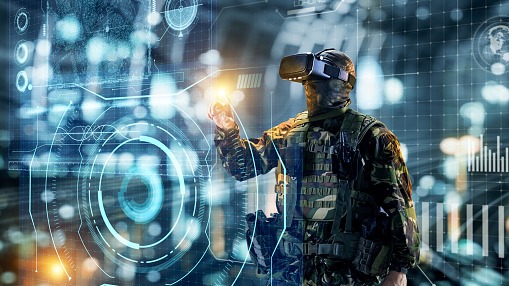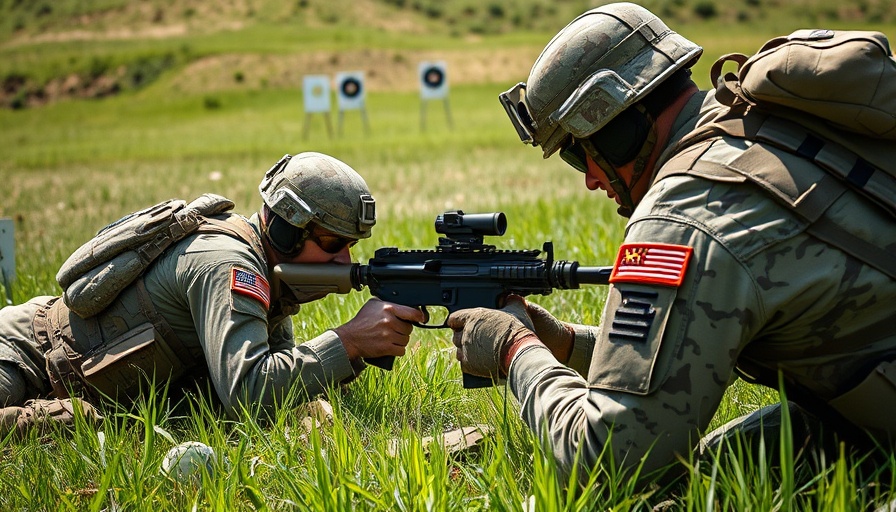
Breaking Barriers: Veterans Forming Communities in Gaming
For many Veterans, the transition from military life to civilian society brings with it a profound sense of isolation. In times where camaraderie was once a hallmark of their daily existence, it’s no surprise that many find themselves longing for those connections. However, today, gaming has emerged as a beacon of hope—an unexpected yet powerful tool in bridging the gap between isolation and social engagement.
Connecting Through Initiatives: The Role of Nonprofits
Numerous nonprofit organizations are leading the charge in utilizing gaming as a medium for community building. One of the shining examples is Brick by Brick Vets, which provides Veterans with gaming consoles and facilitates online communities. These platforms help Veterans form lasting friendships and regain a sense of purpose. As seen in the story of one Veteran who found hope through this initiative, it’s clear that such involvement can be transformative.
As Brick by Brick Vets continues to expand, it’s evident that they are not alone. Veteran-led gaming communities such as Warrior GMR and Military Veteran Gaming (MVG) are reshaping the landscape of traditional Veteran Service Organizations (VSOs). These groups aren’t simply about gaming; they create safe spaces where Veterans can share experiences, access resources, and support one another emotionally, something that is especially vital for those grappling with PTSD or depression.
Esports and Collaboration: Building Skills and Connections
Another notable player in this evolving sector, Combat Tested Gaming, recognizes the role of esports in providing Veterans with not just a united front against isolation, but also critical skill development opportunities. As gaming tournaments and online competitions take center stage, these communities offer Veterans a chance to connect, collaborate, and build resilience through mutual support.
All of this comes in a time when organizations like Stack Up also play a pivotal role in reinforcing these connections by providing mental health support and facilitating Veterans’ engagement in the gaming sphere. From distributing gaming consoles to hosting various supportive events, they work tirelessly to ensure Veterans have a sense of belonging.
Real-Life Impact: Stories Bringing Hope
There’s no denying that the effects of video games on mental health can be profound. Engaging in narratives through games can aid Veterans in processing their experiences, creating a meaningful dialogue around shared struggles through platforms like Discord. It’s akin to the feeling of having someone by your side, even if it's in a virtual world—proving that one doesn’t need to be physically present to offer support.
Stephen Machuga, founder of Stack Up, emphasizes the critical nature of community in preventing isolation, pointing out that many modern Veterans find solace in gaming. As he aptly puts it, this digital connection is “one of the keys to suicide prevention.” By keeping Veterans engaged and connected, organizations are not just offering entertainment; they are providing lifelines.
Looking Ahead: The Future of Veteran Gaming Communities
As these communities grow, they redefine not only what it means to support Veterans but also how to engage them in healing from emotional and physical scars. It’s a model that may represent the future of Veteran support—one that transcends the traditional scope, proving that sometimes healing can be as simple as sharing a gaming console or joining an online session.
The evidence is clear: more than just a pastime, gaming is cultivating connections, providing hope, and fostering resilience within the Veteran community. If you or someone you know could benefit from these communities, take the leap—reach out and join in, because nobody should face isolation alone, even in the digital realm.
 Add Row
Add Row  Add
Add 




Write A Comment